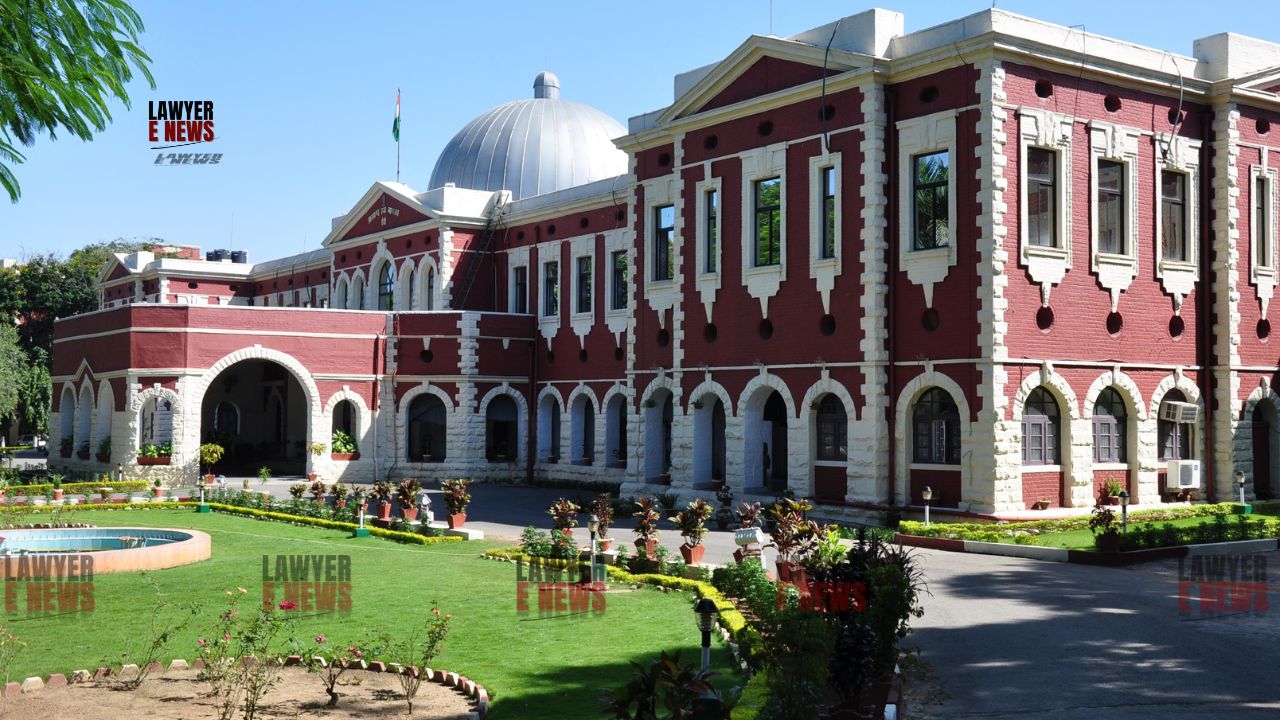-
by Admin
15 February 2026 5:35 AM



Jharkhand High Court reversed the conviction of Achyut Raj Siddhartha and Shashi Kala Devi for dowry death under Section 304B of the Indian Penal Code (IPC), citing insufficient evidence of dowry-related harassment immediately before the deceased’s death. The Court found that the statutory presumption of dowry death under Section 113(B) of the Evidence Act could not be applied due to the absence of proximate evidence linking dowry demands to the death. Observing gaps in the prosecution's evidence, the Court held that the accused were entitled to the benefit of the doubt and acquitted them.
Court Emphasizes Requirements for Dowry Death Conviction: "Proximate Evidence of Dowry Harassment Necessary"
The case revolved around the death of Priya Gupta, who was found hanging in her matrimonial home within six months of her marriage to Achyut Raj Siddhartha. Her father alleged that Priya was subjected to harassment and dowry demands, with Rs. 10 lakhs and a car being provided at the time of marriage, and an additional Rs. 10 lakhs demanded later. The prosecution charged the appellants under Sections 304B (dowry death), 302 (murder), and 120B (criminal conspiracy) of the IPC. The Trial Court found them guilty of dowry death under Section 304B IPC, leading to this appeal.
Requirements for Conviction Under Section 304B IPC
To convict an accused under Section 304B IPC for dowry death, the prosecution must establish (a) an unnatural death within seven years of marriage, (b) evidence of cruelty or harassment related to dowry demands, and (c) that such harassment occurred "soon before" the death. The Court noted that the term "soon before" does not imply "immediately before" but requires a "proximate and live link" between the cruelty and the death.
“The statutory presumption under Section 113(B) of the Evidence Act arises only if there is clear evidence of cruelty related to dowry demands soon before the death. In this case, no such proximate link was established,” the Court ruled [Paras 12-16].
Insufficient Evidence of Dowry-Related Harassment
The Court scrutinized witness testimonies, including that of the deceased’s father and relatives, and found inconsistencies in their accounts. Witnesses failed to provide concrete evidence of dowry demands or sustained harassment close to the time of the deceased’s death. The deceased’s father, in his testimony, did not mention any dowry demand or harassment on the day of the incident, and there was no evidence of recent disputes over dowry.
“On the day of the incident, the focal point of dispute between the deceased and her in-laws was not dowry, as evidenced by the sequence of events that evening. This weakens the prosecution’s case of dowry-related harassment,” the Court observed [Paras 15-16].
Alternative Cause of Death Suggested by the Defense
The defense argued that the deceased’s suicide was due to personal reasons unrelated to dowry, specifically her alleged relationship with someone else. They claimed that she was in contact with another individual, and this fact was known to her husband, which led to discord. However, the police did not investigate these claims, despite evidence of call recordings on a laptop.
“The defense’s theory of an alternative cause of death finds some support in the events of the day, suggesting that factors other than dowry harassment may have influenced the deceased’s decision,” the Court noted [Para 16].
Application of the Benefit of Doubt Principle
Given the lack of direct evidence linking dowry demands to the deceased’s death and the presence of reasonable doubt regarding the cause of her suicide, the Court concluded that the appellants were entitled to the benefit of doubt. The Court cited the Supreme Court’s precedent in Gurmeet Singh v. State of Punjab, where it was held that evidence must establish a proximate link between dowry harassment and the death.
“In dowry death cases, where evidence does not conclusively establish harassment related to dowry demands, the accused is entitled to acquittal by benefit of doubt,” the Court emphasized [Paras 17-19].
The Jharkhand High Court’s judgment underscores the importance of proximate evidence in dowry death cases. The Court held that vague and unsubstantiated claims of dowry demands cannot sustain a conviction under Section 304B IPC. Emphasizing the requirement of a clear link between dowry harassment and death, the Court set aside the appellants’ conviction and acquitted them.
Conviction Reversed: The High Court allowed the appeal, setting aside the conviction and sentence under Section 304B IPC.
Acquittal of Appellants: Achyut Raj Siddhartha and Shashi Kala Devi were acquitted, and the bail bond of Shashi Kala Devi was discharged.
Date of Decision: October 25, 2024
Achyut Raj Siddhartha and Shashi Kala Devi v. State of Jharkhand
